With protests at factory gates continuing, many of the farmers have noted Polish trucks arriving to meat plants.
Poland is the biggest exporter of beef in the EU after Ireland.
Farmers in Ireland have frequently alleged that large quantities of Polish beef are imported into Ireland and repackaged and sold as Irish beef.
If that were true, it would be a major violation of EU beef labelling legislation.
Imports and exports
Beef and offal exports from Ireland to Poland amounted to 1,698t for the period between January and May 2019, CSO figures show.
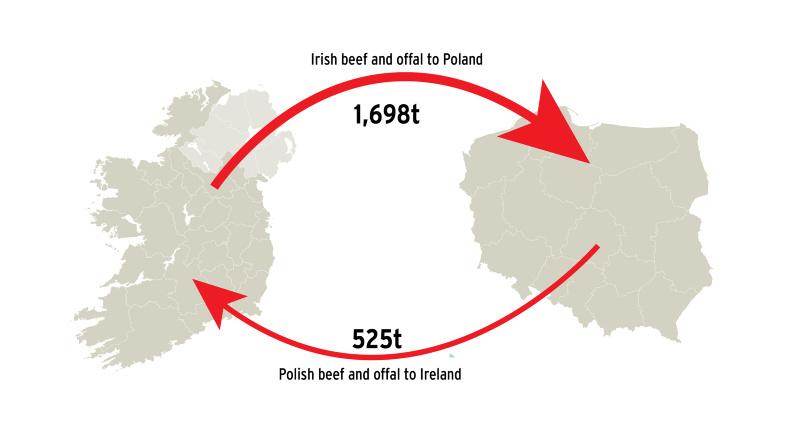
Beef and offal imports from Poland to Ireland were 525t for the same period.
During the five-month period, Ireland’s total Irish beef and offal exports were 231,860t.
Ireland imported a total of 12,484t of beef from a range of countries in this period.
Labelling laws
EU beef labelling legislation means that it is a legal requirement for beef offered for retail sale to carry information of where the animal the beef came from was born in, reared in and slaughtered in.
In order to be labelled as Irish beef, the animal must have been born, reared and slaughtered in Ireland.
If a beef carcase is sold out of Ireland for cutting and further processing, it can still be labelled Irish beef.
There are several examples of this, with cutting plants from Northern Ireland sourcing carcases south of the border and selling the boneless beef as Irish.
If an Irish company bought beef that was born, reared and slaughtered in Poland, it could legally repackage it in Ireland in an Irish-registered beef factory.
However, the packs would be required to have a label that showed where the animal from which the beef was taken was born, reared and slaughtered in.
So, beef from a Polish animal is required, by law, to be labelled as Polish beef even if it has been imported into Ireland and repackaged for sale in an Irish beef factory.
Read more
Beef Plan ‘cannot and will not condone illegal blockading’
Farmers receive just over half of animal value
ABP, Dawn and Slaney Foods injunctions made permanent
With protests at factory gates continuing, many of the farmers have noted Polish trucks arriving to meat plants.
Poland is the biggest exporter of beef in the EU after Ireland.
Farmers in Ireland have frequently alleged that large quantities of Polish beef are imported into Ireland and repackaged and sold as Irish beef.
If that were true, it would be a major violation of EU beef labelling legislation.
Imports and exports
Beef and offal exports from Ireland to Poland amounted to 1,698t for the period between January and May 2019, CSO figures show.

Beef and offal imports from Poland to Ireland were 525t for the same period.
During the five-month period, Ireland’s total Irish beef and offal exports were 231,860t.
Ireland imported a total of 12,484t of beef from a range of countries in this period.
Labelling laws
EU beef labelling legislation means that it is a legal requirement for beef offered for retail sale to carry information of where the animal the beef came from was born in, reared in and slaughtered in.
In order to be labelled as Irish beef, the animal must have been born, reared and slaughtered in Ireland.
If a beef carcase is sold out of Ireland for cutting and further processing, it can still be labelled Irish beef.
There are several examples of this, with cutting plants from Northern Ireland sourcing carcases south of the border and selling the boneless beef as Irish.
If an Irish company bought beef that was born, reared and slaughtered in Poland, it could legally repackage it in Ireland in an Irish-registered beef factory.
However, the packs would be required to have a label that showed where the animal from which the beef was taken was born, reared and slaughtered in.
So, beef from a Polish animal is required, by law, to be labelled as Polish beef even if it has been imported into Ireland and repackaged for sale in an Irish beef factory.
Read more
Beef Plan ‘cannot and will not condone illegal blockading’
Farmers receive just over half of animal value
ABP, Dawn and Slaney Foods injunctions made permanent





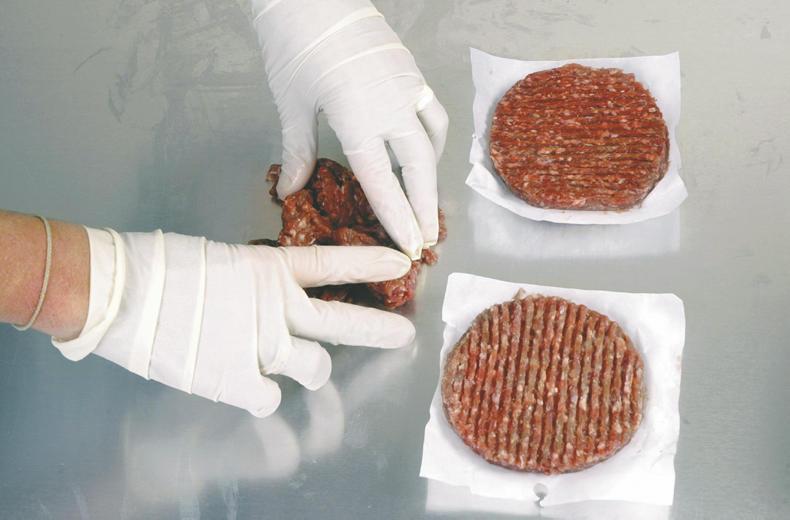

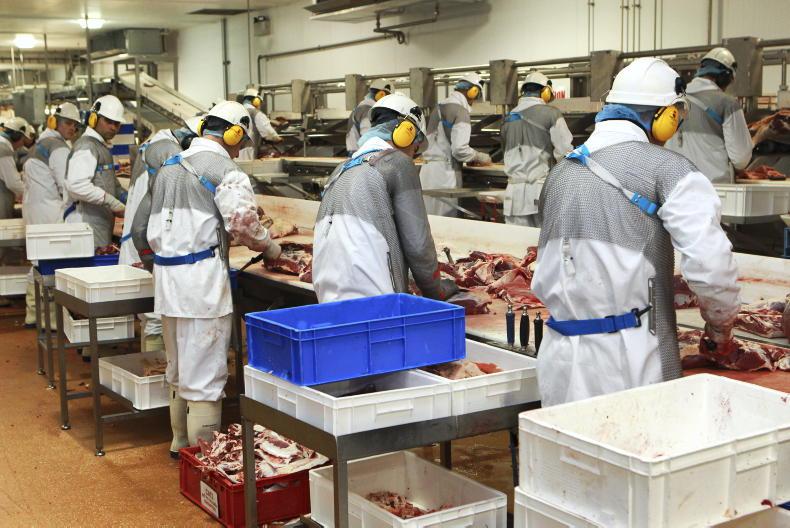
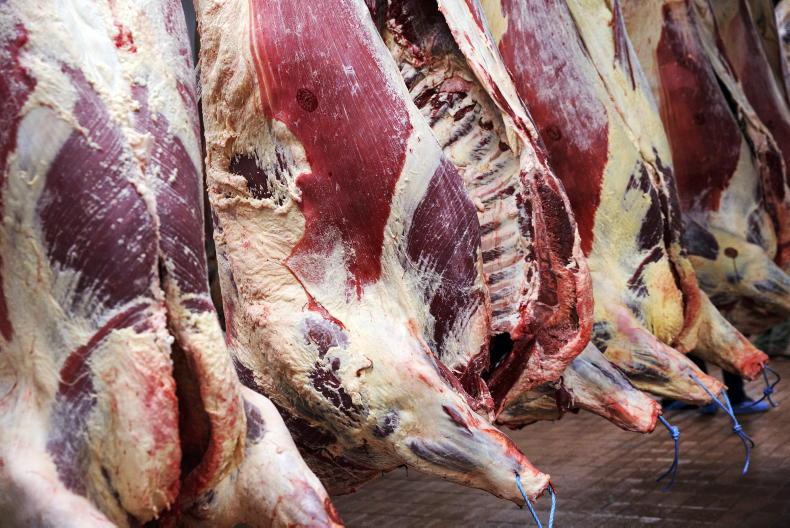
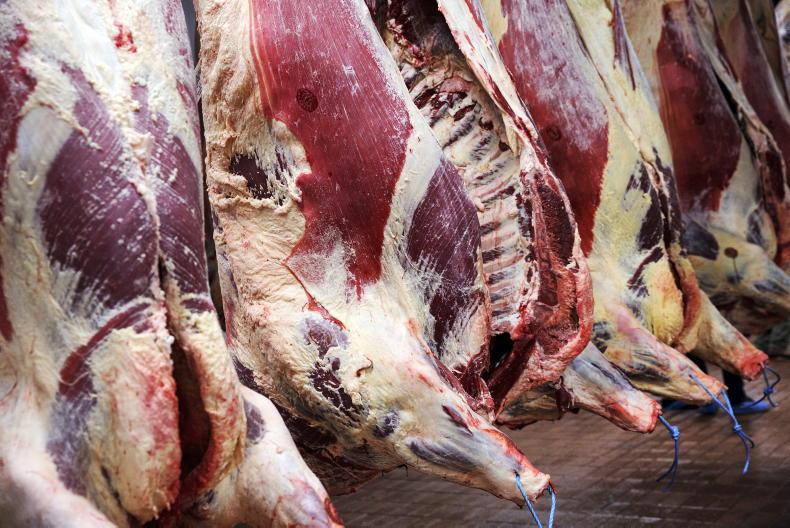
SHARING OPTIONS